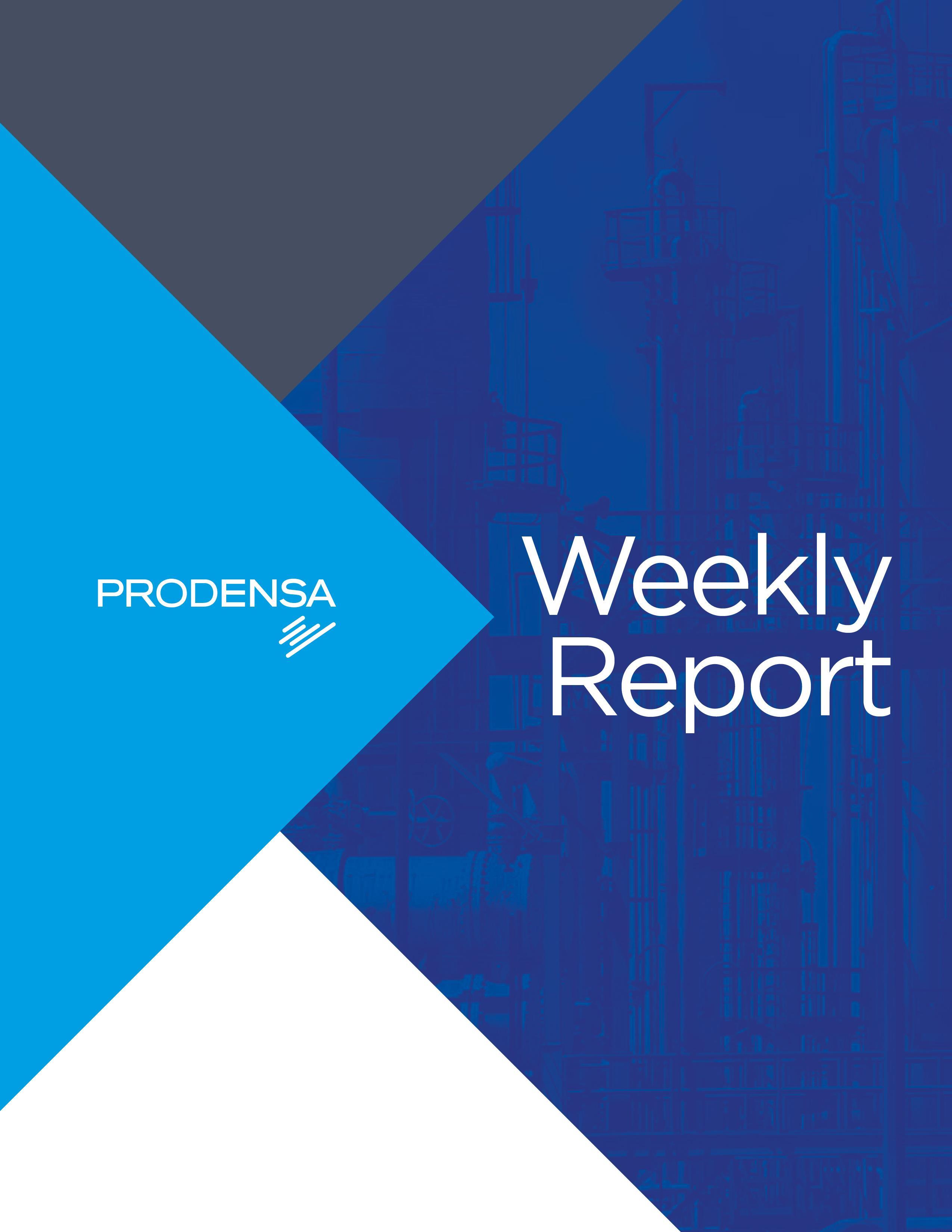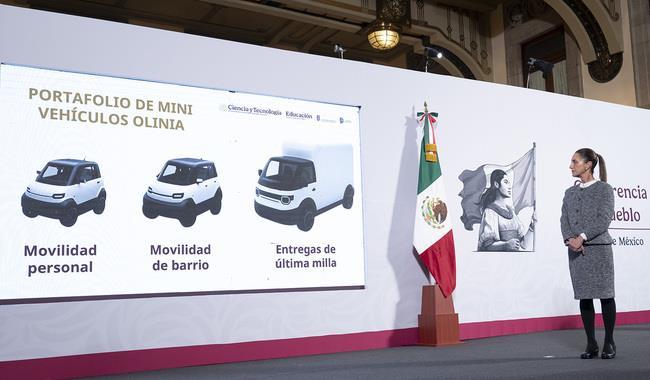
January 3-10, 2025


January 3-10, 2025
On January 8th, 2025, Mexico’s Ministry of Finance and Public Credit (SHCP) unveiled the 2025 Master Plan to modernize foreign trade and fiscal processes Aimed at combating fiscal evasion and enhancing tax revenue without increasing taxes, the plan focuses on digitalization, regulatory compliance, and transparency It is structured around three pillars: taxpayer support, combating tax evasion and smuggling, and rigorous inspections of foreign trade operations
1 Taxpayer Support and Aid: The plan simplifies high-demand procedures, reduces document requirements, and enhances access through an upgraded SAT webpage and mobile app It expands the Mobile Office program to underserved areas and exempts primary sector from income tax (ISR). A fiscal regularization program waives penalties for taxpayers, while autofill systems streamline tax declarations for various sectors Tax education materials are also being introduced
2 Control Against Tax Evasion and Smuggling: Advanced technology will detect irregularities via analytical tools, statistical models, and monitoring systems The SHCP will coordinate with federal authorities like UIF and IMSS to identify risky sectors and enforce compliance
3. Smuggling Prevention and Trade Inspections: Enhanced operations will target VAT and IEPS abuses, customs misvaluations, tariff violations, and non-compliance with import/export permits The plan also addresses misuse of free trade agreements and VAT withholding by foreign entities This comprehensive strategy reflects Mexico’s commitment to modernizing fiscal practices while ensuring economic equity and transparency
Source: GOBIERNO DE MÉXICO

The Mexican government, has launched the National Development Plan (PND) 2025-2030, a comprehensive framework to define the country’s economic, social, and political priorities for the current administration Grounded in Mexican humanism, the plan focuses on governance, social welfare, moral economy, and sustainability. To ensure broad public participation, consultation forums will be held to assess the nation’s needs in areas such as education, health, employment, security, and sustainability The consultation process includes opportunities for both in-person and digital participation, with forums scheduled from January 6 to 19, 2025 The finalized plan, to be delivered by February 2025, aims to guide policy and improve the quality of life across Mexico through inclusive public input.
Source: INFOBAE

On January 9, 2025, Mexican President Claudia Sheinbaum met with Guadalupe Taddei, the President of the National Electoral Institute (INE), and the other 10 electoral counselors at Palacio Nacional The meeting focused on organizing the extraordinary elections for judges, magistrates, and ministers scheduled for June 2025 The INE requested an increase in its budget to cover the costs of organizing these elections, which are part of a judicial reform approved in September 2024. The INE emphasized the importance of ensuring citizens' political rights and maximizing the elections' transparency Sheinbaum expressed support for these needs and committed to democratic principles. Taddei deemed the meeting successful and affirmed that the budget increase would be addressed The INE had previously approved a budget of 6,219 2 million pesos for this electoral process, which is part of a larger institutional budget
Source: EL ECONOMISTA
Dip Pedro Haces Barba, Political Operations Coordinator for GP MORENA, highlighted progress on reducing the workweek to 40 hours. He called on Dip Martha Gabriela Gómez Maldonado, Chair of the Labor Commission, to report updates. After discussions with ex-Dip Susana Prieto, they await President Claudia Sheinbaum’s proposal. The commission is reviewing 40 initiatives, including Dip Pedro’s, with plans to approve them soon and ensure broad participation in discussions Dialogues should continue after Congress begins session on February 7th
Source: EL ECONOMISTA
Mexico's strategy for addressing the U S migration crisis, especially under President-elect Donald Trump, focuses on the critical economic role of migrants, particularly the 11 million undocumented workers in the U.S. President Claudia Sheinbaum has highlighted this issue, emphasizing how these workers are an integral part of the workforce Meanwhile, Mexico's government is preparing to respond, with legislators from Morena, Verde, and PT planning a meeting to discuss the U S -Mexico relationship They are also considering engaging with Foreign Affairs Minister Juan Ramón de la Fuente to explore how the Legislative Branch can respond to tougher U S migration policies, including deportations and tariffs Sheinbaum’s strong stance on this issue has received broad support, with analysts predicting Trump will focus on deporting those relying on public assistance or with criminal backgrounds
Source: EL PAÍS

On January 7, 2025, Claudia Sheinbaum, dismissed concerns that the resignation of Canadian Prime Minister Justin Trudeau would jeopardize the US-MexicoCanada Agreement (USMCA) She highlighted that the agreement benefits all three countries, emphasizing the complementarity rather than competition between them Sheinbaum also noted that the treaty will be reviewed in 2026 and reassured that trade relations would remain strong Additionally, she pointed out the strengths of Canada and Mexico’s public healthcare systems compared to the U S insurance model
Source: REFORMA
On January 6, 2025, President Claudia Sheinbaum introduced Olinia, Mexico's first manufacturer of small electric vehicles, aimed at offering safe, sustainable, and affordable urban mobility solutions The project, developed by the National Polytechnic Institute (IPN) and the National Technological Institute of Mexico (TecNM), aligns with Mexico's push for a sustainable future by reducing greenhouse gas emissions Olinia will produce three types of electric vehicles: personal mobility, neighborhood mobility, and last-mile delivery vehicles, all with low operating costs compared to gasoline-powered cars. Prices are projected to range between 90,000 and 150,000 pesos, making them accessible to a wide demographic
The vehicles will feature mainly Mexican components, supporting local manufacturing Regional assembly plants are planned to reduce transportation costs and enhance affordability This initiative is part of Mexico's broader transition to renewable energy and cleaner transportation, contributing to environmental protection and urban mobility efficiency Olinia also emphasizes public-private collaboration, with a portion of earnings reinvested in science and education With a 25 million pesos budget for 2025, the project exemplifies Mexico’s commitment to technological sovereignty and sustainable development
Source: GOBIERNO DE MÉXICO

In a morning press conference on January 9, 2025, Alejandro Gertz Manero, Mexico's Attorney General, criticized the United States for the "abundance" of high-caliber weapons entering Mexico He referred to a recent U S Department of Justice (DoJ) report that confirmed the substantial impact of these weapons, especially in empowering criminal cartels Gertz emphasized that the Mexican government has been actively working to prevent the entry of such weapons, initiating legal actions in the U S He pointed out that 74% of these weapons, particularly high-caliber firearms, are coming from the U S Gertz also highlighted the challenges Mexico faces in tracking weapons through U S systems, noting delays in obtaining information on seized firearms He described the situation as a form of "conspiracy" that allows the illegal flow of arms into Mexico. Gertz called for a more cooperative relationship with the U S to combat this issue, which is significantly contributing to the violence in Mexico
Source: PROCESO
Presented by: Ministry of Finance and Public Credit
Objective: To issue the general provisions that facilitate the timely and appropriate compliance with the obligations established in the Customs Law and other applicable regulations in the field of foreign trade and customs.
Status: Published in the Official Federal Gazette (DOF)
Presented by: Secretariat of the Interior
Objective: Establishes that the judge will automatically order preventive detention in cases of extortion, illegal activities related to fentanyl, chemical precursors, essential chemicals, and other synthetic drugs, smuggling, and any activities related to false tax receipts, in accordance with the terms set by law
Status: Published in the Official Gazette of the Federation

Presented by: Federal Executive
Objective: To disclose the Federal Budget of Expenditures for Fiscal Year 2025, where the total net expenditure is projected to amount to $9,302,015,800,000, corresponding to the total revenues approved in the Revenue Law.
Status: Published in the Official Federal Gazette (DOF)
AGREEMENT announcing the Environmental Electronic Window (VEA) of the Ministry of Environment and Natural Resources and establishing its operating guidelines.
Presented by: Alicia Bárcena Ibarra
Subject: It offers a centralized digital platform to streamline environmental procedures It ensures efficient, transparent citizen access to services, promoting sustainability, technological innovation, and regulatory compliance in interactions between Semarnat and society
Status: Published in the Official Federal Gazette (DOF)
